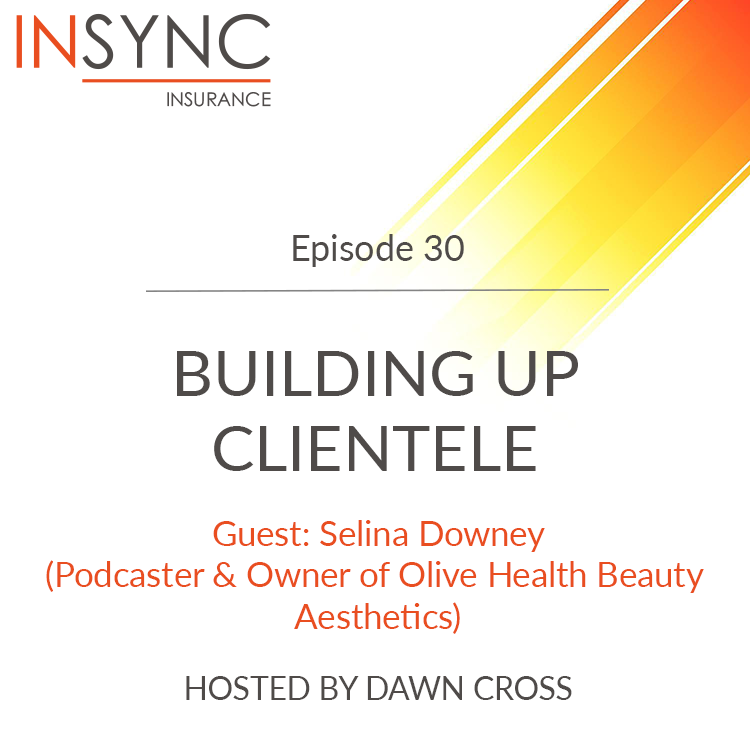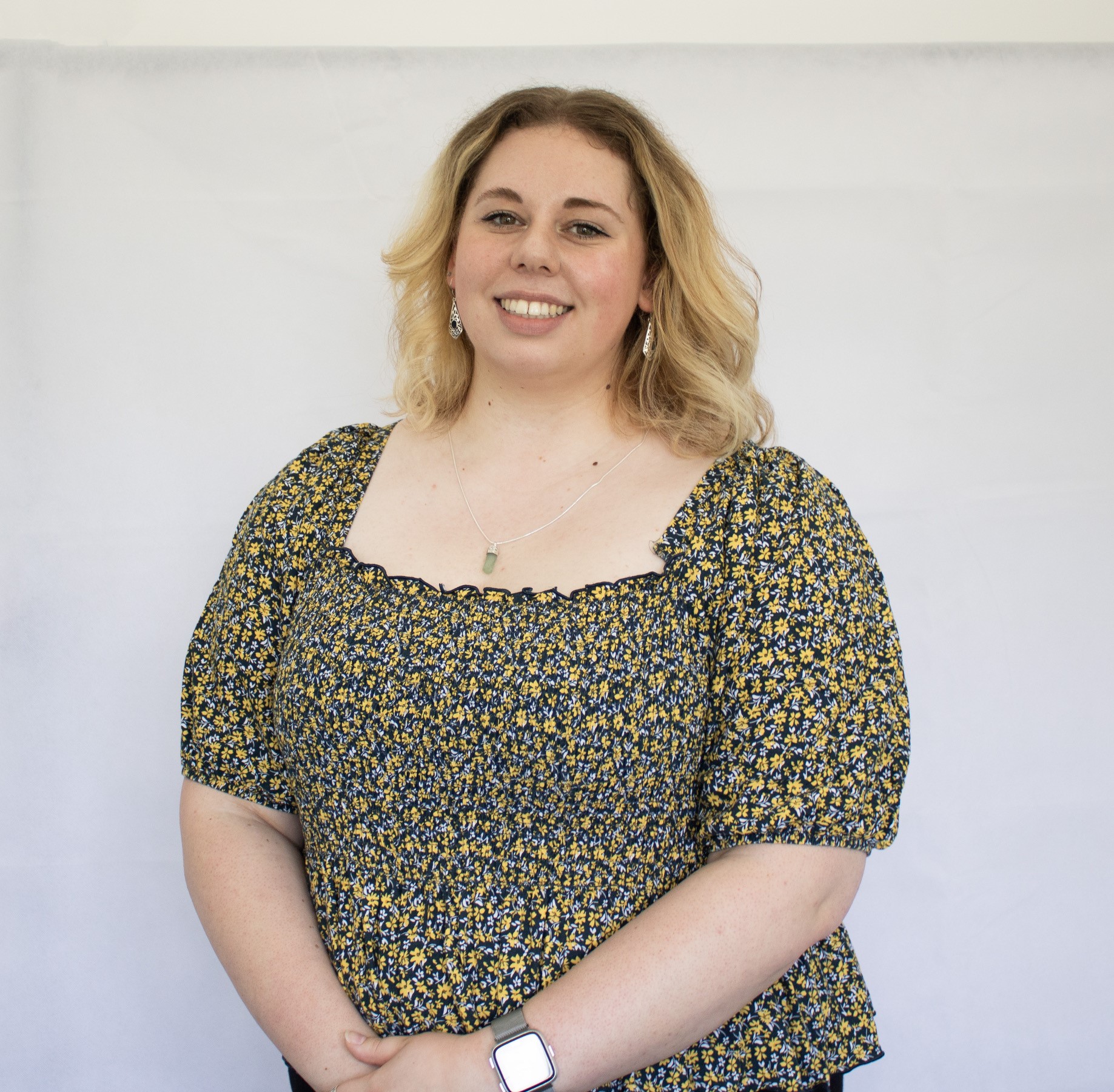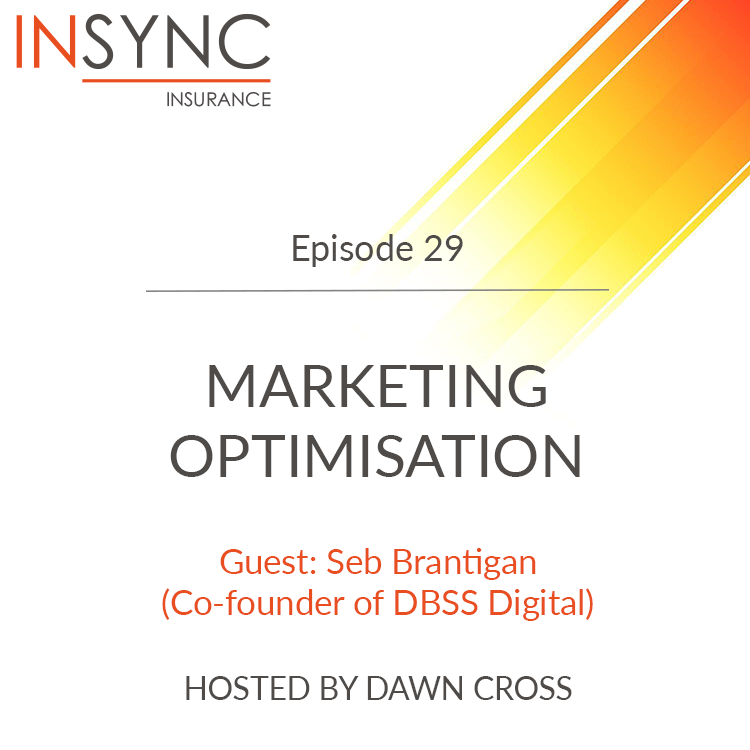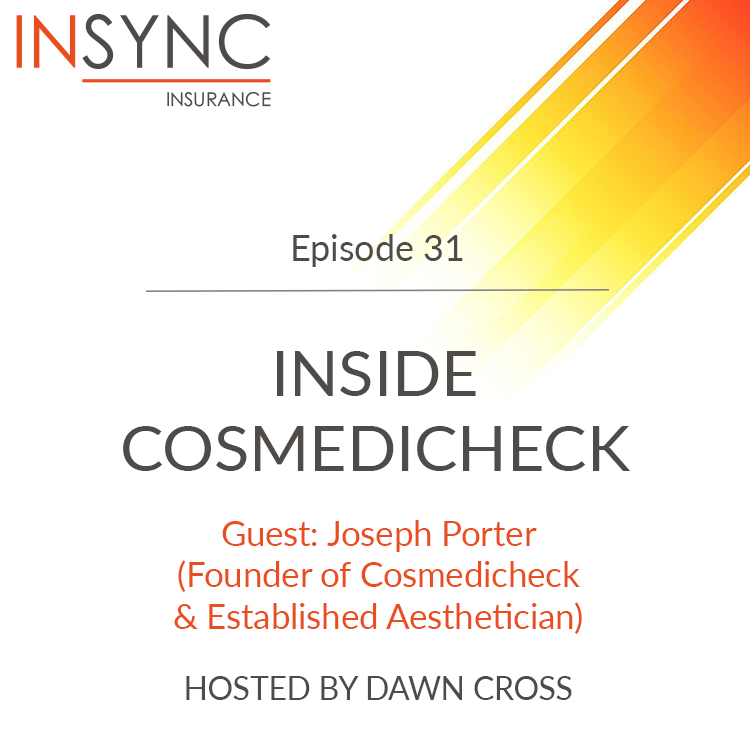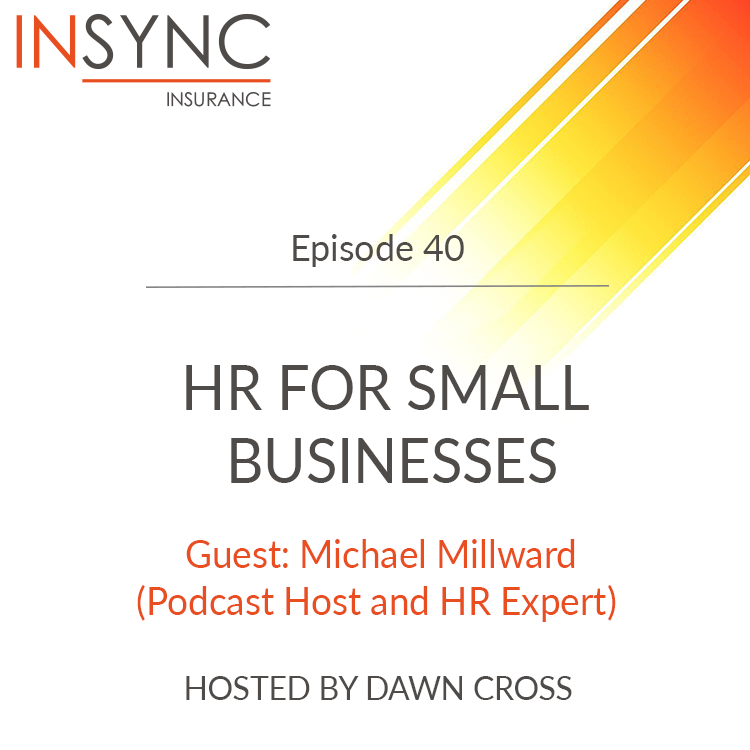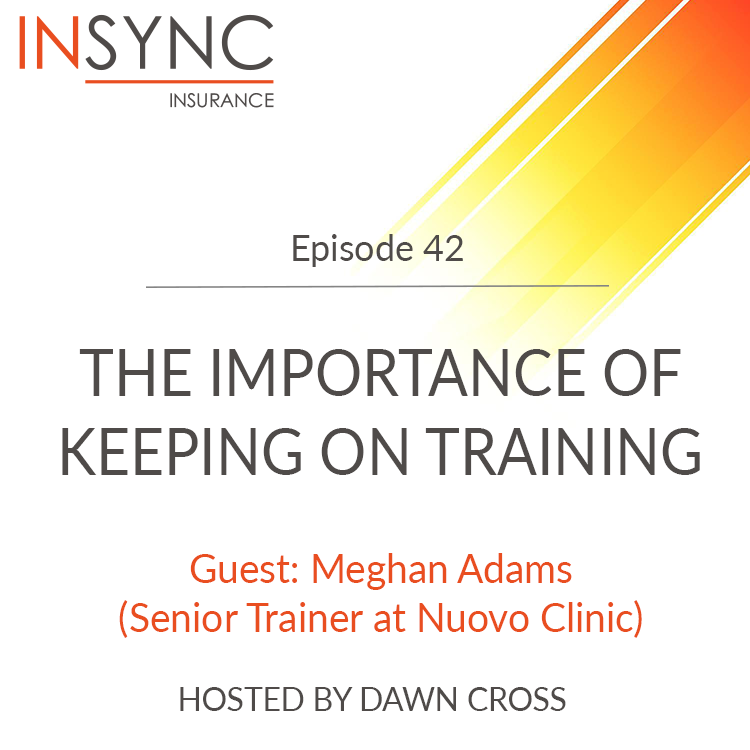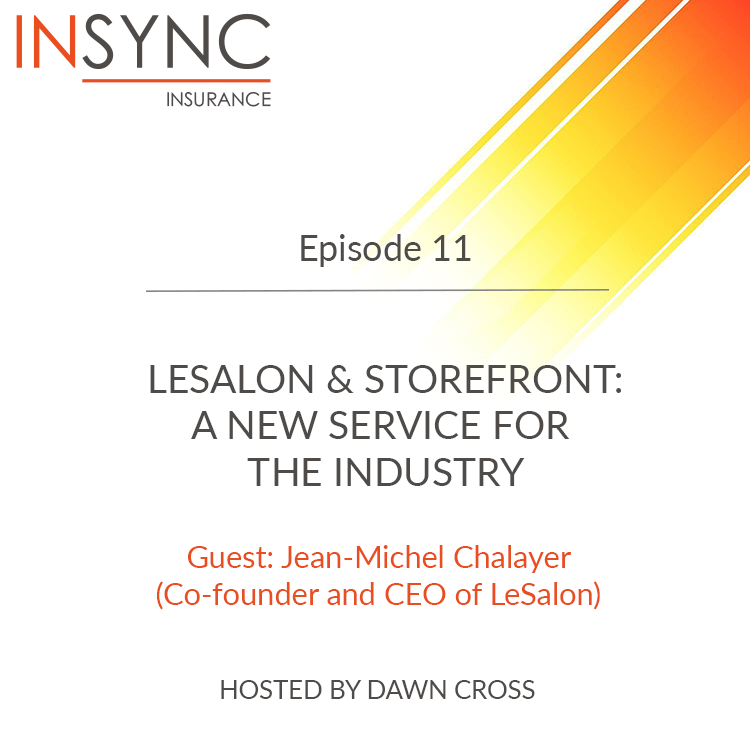Episode Transcript
[00:00:04] Speaker A: Welcome to the Insync Insurance podcast. I'm your host, Dawn Cross, and today we'll be discussing building up your clientele with fellow podcaster and esthetician Selena Downey.
If you enjoy our podcast, make sure to leave a rating on your favorite podcast directory.
[00:00:21] Speaker B: Brilliant. So thank you so much for coming on today. Could you introduce yourself and what you get up to?
[00:00:27] Speaker C: Lovely. Thank you, dawn. Thanks for having me. So, my name is Selena. I am the owner of Olive Health Beauty and Aesthetics. I'm based in Seven Oaks in Kent. I'm 37 years old. I'm a non medic. I've been in the industry now a few years, and I also have a podcast myself, which is called Training Anesthetics.
And I started that because I was just crippled with anxiety when I first started.
I didn't know where to start, where to look. And I started it out of genuine wanting to genuinely help people in the industry because I don't feel that there's necessarily a lot of free aftercare sometimes in the industry and after you do the training. So, yeah, so the podcast called training and aesthetics with Selena Downey and, yeah, check it out. It's really good, really interesting. Lots of helpful tips for people when they're first starting out and they don't know what to do, like choosing an academy or building a client base, which we're going to talk about today.
But yeah, lots of free, interesting advice.
[00:01:43] Speaker B: That's really awesome. I think as well, some academies have some really great aftercare programs where if you have any questions or queries, they have like a dedicated Whatsapp group, something like that. But not everywhere, I guess this is dedicated to their students. So to be able to access that free resource, great. And when I came across your podcast, I was like, this is brilliant. Need to share it out more. And I was like, wait, I need this lovely lady on my podcast.
[00:02:11] Speaker C: Thank you very much. Yeah, I do agree. Academies have got a lot better with helping students with the aftercare, but there's always a couple that aren't as responsive. And I'm a big believer that you really do have to do a lot of your own research, even after going to these academies. Like the learning doesn't stop once you do the course. You have to source information everywhere. So that's why things like this podcast is also really helpful.
[00:02:41] Speaker B: Yeah, definitely. So obviously, as you reference, our topic today is talking about building a client base, obviously. Now, if you've already kind of got like a nice kind of bit of a network, it's really great. But if you're someone starting out and you're not sure how to get clients, I think this is a really great topic to touch on. So my first question is, how did you manage to build up that client base through social media? What was it like for you?
[00:03:07] Speaker C: Okay, so firstly, social media is absolutely imperative. I mean, the audience that you can reach by doing it is just insane.
I know that there's other techniques locally, like putting leaflets through the door and I don't know, old school techniques like putting your card in the shops, et cetera, but it just doesn't hit the same as social media. So it's really important to get on that immediately, even before doing your training. Get the buz going that you will be doing your training that you will be opening soon. Get clients excited about you.
Put things out, such as developing your room, where you're going to be working from, the areas you're going to be working from. Get people to know you even before you've started. I think that's really important and I know a lot of people don't like doing it and I know it's really awkward. And believe it or not, I was so shy when I first started getting in front of the camera. But it's just one of the most important things that you can do. People buy from people, people buy from you. They want to see you, they want to see that you're articulate. They want to see the person that's going to be injecting their face.
They want to see that you're well presented, that you look after yourself. They want to see what your face looks like. So it's really important that you do get in front of the camera and even if you don't have anything at the beginning to advertise, I'm really big on giving clients educational posts, talking about products, talking about the treatments that you're doing. I think we take for granted when we're in the business that everybody knows about anti wrinkle treatments and we just think everyone knows it takes two weeks to work, but they don't. Some people genuinely don't know this information. So doing quick educational posts like that is super helpful. You don't have to have before and after content when first starting, because I know how difficult that is even now, the area that I'm in. My clients don't like to be filmed. They don't like pictures. So it's very difficult even for me now, to get before and after content. So you have to be very inventive and you have to be a little bit imaginative about what you can, you know, educational posts, fun facts, talking about yourself, talking about the treatments that you offer. That's really good content when first starting.
I also think that reels on Instagram have just been hugely beneficial for me.
I've got to be honest with you. I'm not an Instagram pro. As I said in my intro, I'm 37 years old, so I'm a bit of a dinosaur, I suppose, in the aesthetic world.
So I don't go on Instagram a lot. But I do find that the biggest engagement for me when I do is by doing reels. But I'm by no means an Instagram expert.
My platform is probably Facebook. That's the one that I gained the most strength from. And it's by joining all those know the local Facebook sites that are in your area. So as I said, I'm based in Seven Oaks area. So I would know the Seven Oaks business sites, Seven Oaks mum sites, Seven Oaks dog sites, whatever is in my local area that I'm allowed to promote on, I join it and I advertise as long as it's obviously sticking within the rules. And you have to be very careful on these sites as well. They do have strict rules and I do know from experience that if you break them, and they might say you can advertise on a Monday, for example, but if you advertise on a Tuesday, sometimes they will ban you from that site. So do use these Facebook sites. I think they're amazing, but you do have to really comply with the rules that they set and put yourself out there. Put out deals.
When first starting, I was very pro on deals. I'm not so much now because I have built the client base, but deals are a fantastic way, I believe, to bring in clients when you're first starting out because you just want them to meet you.
My philosophy was maybe it's a little bit big headed, I don't know. But my philosophy was if you just came and met me and you saw me and you saw my clinic and you saw who I was and you saw how passionate and caring I am and knowledgeable, I believe that I can get that client and I can keep them coming back.
So I just wanted to get people through the door at the beginning and sometimes you have to do that through a deal.
And I did crazy deals when I first started, but it did bring interest in and I would say probably about 30% of those people that came through the door at the beginning with the deals are still my clients today.
I didn't win the morse, you will always get the client that will just go to where the deal is.
And that's fine because you can gain experience from that client, especially when first starting. You do need to practice your craft and your profession.
Sorry, I feel like I'm rabiting too much.
[00:09:09] Speaker B: No, it's absolutely fine. You've got all this information. It's really great to kind of hear about it. Obviously I'm not starting in the industry myself, but I'm sure there's plenty of people out there that really appreciate just like the little bits and just being able to hear the lows as well as the highs as well with starting a business like that, because I think some people tend to gloss over the bad parts of the bits. That's been a bit of struggle and then obviously you don't realize it's actually going to be a struggle in this and this way. And no one else really talks about it. So it's great that we're talking about it today.
[00:09:45] Speaker C: Yeah. It's not easy building a client base. It doesn't happen overnight. Absolutely not. And a lot of it has been repeat and referral. So not just social media, not just gaining the client. I think what you have to do is you have to impress that client. So it's great getting the client through the door. That's fantastic. But your regular clients are your bread and butter. And I think that sometimes people are just concentrating so much at the beginning about getting new business, getting a new client. But you have to see that one client in front of you isn't just one client. That one client can be ten clients, because they're going to go home and they're going to tell their sister or they're going to tell their mum or their best friend or all of them. And then in turn they might come in and then they might tell their friend and their sister and their mum and et cetera. And it is like a big web. So you really do have to treat that one client like it is a long row of clients.
And I think that's really important. Don't just always focus on getting new business.
Also focus on what you can do to impress the client that you have in front of you.
[00:11:11] Speaker B: That sounds amazing.
Referring kind of back to the start as well. Obviously you spoke about how the learning never really stops.
I think just like whenever there's, I think, new techniques, new products that come out, obviously learning is such a big part of working. I think just in any profession, let alone just beauty and aesthetics, what kind of things would you recommend, I guess, with continuing learning after the initial training course, someone goes on.
[00:11:45] Speaker C: Yeah, absolutely. I think continuing learning goes with retaining your client and getting the referrals, because this industry, oh, my goodness, it just moves so fast. And the techniques and the things that I was taught in training years ago to the things that are being done today are completely different.
The style, the trends. I mean, now at the moment, everybody is talking about polyonucleotides. It's everywhere. I can't move without seeing it.
So it's a new trend that clients are coming to me with.
So I've had to get on top of that knowledge, because if I want to retain that client base that I have, I have to make sure that I'm on top of my a game and that I know about the things that they're coming to me with. Because clients nowadays are far from, I mean, they've never been stupid, but they're a lot more educated. They can use social media like they've never used it before. They have access to the Internet. They have access to everything at their fingertips. So you have to be on top of that because they're going to be looking to you to get the professional answer.
I've just booked a course today, another course, and it's something that you constantly have to develop as the industry develops as well.
So, yeah, always going on courses, forever going on courses. There's also other things that you can do that are free, and they do connect with other people in the industry, which I'm a very big fan of connecting with people. The industry is actually very helpful if you just reach out, because otherwise it can be very isolating. So there's just some WhatsApp groups that you can go on and you can join, and it's just people like myself, medics, non medics, and they're just all there to just bounce ideas off each other, get support.
And if you go on to some Facebook forums, which are specifically for aesthetic people like myself, it's just where you can ask questions and do it in a safe place. I mean, obviously you have to learn everything on your training. I'm not saying that it's a replacement for training. Absolutely not. You have to get that qualification, and you have to go back to your academy. If you have any issues with what you've been taught or you're not sure on, you know, things always crop up in the industry. Like I said, this new trend of polyonucleotides, I didn't have a clue what it was. I asked the Facebook group, like, what is it? What goes on? What brands do you recommend, where do you suggest training with, et cetera? So yeah, learning is so important. I don't think it will ever stop because the business just moves so quickly. So yeah, it's very important. Another thing about learning is to educate your client also because they want to know about the new products as well. They want to know about the latest things that's happening. They like to go home and tell their friends about it, about, oh, I've tried this and it's really exciting. So definitely educate your clients. Tell them about the new trends. Give them options as well, because it was all about skin boosters, now it's about polynucleotides. So it's all about educating your client and giving them options of what may be best for them. So yeah, you can't do this job and just stop on the first training courses that you do. You will not survive. You will not survive with your client base and you will definitely not gain any new clients. So learning is just as important after you've done the course to it is initially doing the course in my opinion.
[00:15:57] Speaker B: No, definitely. And I think as well, it just shows also your clients that you're a dedicated practitioner. You want to make sure that you're ahead of the game or on top of the game, and that you're always making sure that you are the best that you can be to deliver the best service that you can give. So yeah, I definitely agree on that aspect.
Moving on then, another question I wanted to ask was obviously you trained up, you've done all this, but when working with clients, what's the best way to, obviously you need to be polite and everything else, but especially when you're working with such delicate procedures, like with face and stuff, how would you recommend, I guess, interacting with clients? What's the best sort of way to do that?
[00:16:49] Speaker C: Yeah, absolutely. I mean, it's a very sensitive thing. You're working with people's faces, aren't you?
And women can be very emotional about this. I had a client only the other day and she was in her early sixty s and she just got onto the beauty bed and started crying. And when she was looking in the mirror and just saying how much she didn't like herself and how ugly she felt, I mean, it was really hard to hear, to be honest.
I probably have a bit of a different approach to other practitioners.
My approach is to not make women feel bad about themselves. It's to make women feel better about themselves and not point out all their flaws.
I'm actually very anti that. I have been to practitioners many years ago in the past who have told me things that I need doing that I never saw before I went into that room with them, and then I would come out of that room and rather than feeling like I had a great treatment and feeling really good about myself, I would just feel more insecure. And then I would look in the mirror and just see another imperfection.
So when clients ask me what they think that, I mean, it's one of the number one questions I get in clinic. Clients say to me, what do you think I should do with my face? And my answer is always, well, what upsets you? What bothers you when you look in the mirror? I don't have to look at you every day. You have to look at you every day. So what upsets you? I'm not going to be here to tell you all your flaws and what's wrong with you and what is the ideal of beauty, that you need to look symmetrical, et cetera. I'm not going to do that because women beat ourselves up more than anybody. So you don't need me telling you that. So I have a very gentle approach to people. I'm not here to give the hard sale.
I'm very anti pushy sales.
It's not my style. And I think in turn, people feel very comfortable with me, and I find that that also retains business and helps with referral of business.
I mean, there is somebody very local to me who is also a practitioner. So they're my competitor. And I have taken, I would say, a lot of business from this man because he is very aggressive in his sales style when he is treating these people, ladies and men, and they have come to me afterwards and explained that they felt very pushed into having treatments sometimes, that they didn't necessarily think they needed or wanted because they were told how bad they looked.
And you might be able to push a client into that once, but they will reflect on that.
It's not ethical, it's not right, and it's not how I do things. I'm not here to push sales. If a client wants a treatment done, I will absolutely do it for them. If they are suitable, if it's right, and if they can obviously have it, if they're medically fit.
Another thing is to be friendly, be professional. I know that sounds a bit obvious, but I've also heard from clients who have come to me to say that they have gone to a particular practitioner, not this person I was speaking of earlier, but just a practitioner in the past and they almost felt like they were bothering them when they were walking into the room, which is just madness to me.
You give a warm welcome, introduce yourself, sit them down, take their coat, make them a tea or coffee, tell them a little bit about yourself. Don't just sit them on the bed and poke needles in them and take their money.
Be a little bit personal. Just be a bit more personal with them. Know, explain what the treatments are.
These treatments are a lot of money, dawn. They're not cheap and they need a thorough consultation with that.
So I always, always book out if it's a new client, I will always book out a 1 hour appointment to sit down and discuss the procedure with them. The aftercare, what we're doing, the product that I'm using, I'm very informative with them and I have been told that on many occasions that they have never had such information delivered to them before a treatment. And they like that and they're impressed with it and it gives them confidence in you and it builds that level of trust.
So don't just see them as a commodity. It's time that they want to have the information. I believe, and I think that a lot of the reason why I have built a successful client base is by treating every single client very special and that I do have all the time in the world for them and that they're not bothering me if they want to know about a 300 pound treatment that I offer.
So, yeah, that's very important.
[00:22:51] Speaker B: No, definitely. And I think as well, even just saying back to, especially if it's their first ever treatment, some people get bit scared of needles and that sort of thing. So by putting them at ease, it just instantly just makes everything go so much better, even maybe down to the healing process afterwards. Because if you're scared and worried, your cortisol level is going to be up and it's not actually great when your body's trying to relax. You need it to be relaxed in order to get the best outcome possible. So, yeah, I think that's definitely key. And sometimes maybe people forget and it's like that you need to act like a human to this other human. It's not just like, oh, in, out, you're done. You need to kind of really get in there and be personable or they're less likely to come back as well because they don't feel comfortable or angle whatsoever.
[00:23:40] Speaker C: Yeah, absolutely. It's very important. I see a lot of people that are very nervous and sitting down and talking them through everything, it really does calm them down. It makes a massive difference and they really do appreciate that. And I get told that a lot. And that's another thing that gives referrals to me because you have taken that time. So, yeah, absolutely. It's very important. I couldn't agree more.
[00:24:07] Speaker B: Definitely. Well, we are getting close to the end of the episode. Is there anything you'd like to add?
[00:24:15] Speaker C: One of the most important things.
I see a lot on the groups that I join, the support groups, people saying that what they're doing isn't working. And I think it's great. You should always, always reach out for inspiration, for tips. Like I said earlier, referring back, you should always be learning. Absolutely.
But another thing is just the perseverance.
Rome wasn't built in a day and don't look at what everybody else is doing around you. Concentrate on yourself and keep doing it. And the more that you put into it, the more that you will get out of it. You can't just do one advert once and expect to have 50 clients lining up. You're going to have to try different things. You're going to have to learn some mistakes, make some mistakes and learn from them, should I say. But the key thing, the thing that really does knock out any other competitor is the perseverance of it. Having that grit and determination to show up every single day, even when you don't feel like it, it can be really tough.
They're not all good days. Running your business is not all fun and rainbows, but it is worth it. But you have to put the graft in to get the rewards. But perseverance, just keep going. And if you knock on people's doors long enough, they will answer and they will come.
Build it and it will come. I'm a true believer in that. Absolutely. So, yeah, that's it. That's my advice. I hope it's been helpful.
[00:26:09] Speaker B: No, I mean, it's definitely been amazing to learn as well. Even if, again, I'm not necessarily in the industry as a practitioner, it's been really great. And I think a lot of the lessons can transfer to no matter what you're doing in beauty and aesthetics, from tattooing to even if it's just eyebrow spreading.
This advice is really awesome, I think, to take on no matter what you're up to in the industry.
[00:26:34] Speaker C: Yeah, absolutely. Like I said, always learn something new every day. Cheesy as it sounds. But it could be just that one little piece of advice that you've taken away with you or something that just keeps you going and it will happen. You just need to stay positive and keep doing it. Perseverance is the number one.
[00:26:56] Speaker B: Definitely. Well, thank you so much for coming on today.
[00:26:58] Speaker C: You're welcome. Thank you for having me.
[00:27:02] Speaker A: Thank you to my guest today, Selena Downey, for discussing her experiences and advice for building up your clientele for your business. If you're interested in the services or podcasts, check out the links in the description.
I have been your host, John Cross and tune in next week for another episode.
NSYNC is one of the UK's fastest growing insurance providers, offering comprehensive cover for SMEs and self employed across the UK. Our expert team containing our insurance meet your individual business needs and compare prices from our Lloyds of London approved partners. We offer a five star service and have been FIFO platinum trusted winners five years in a row.
